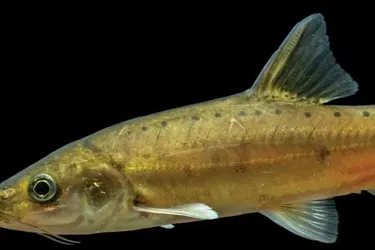Scientists found a unique goldfish in China: what is interesting

In southwestern China, scientists have discovered a new species of golden cave fish that is still in the process of evolutionary changes, adapting to underground life. According to the researchers, this fish has no scales and belongs to a new species of goldfish that lives exclusively in caves in China and the surrounding areas.
Some cave fish have lost their eyes and scales, as in conditions of constant darkness, the organs of vision lose their function, and protection in the form of scales becomes less necessary. However, a new species, called the Xingren goldfish (Sinocyclocheilus xingrenensis), still retains large eyes, although it has lost its scales. This, according to scientists, indicates an incomplete stage of evolutionary adaptation to the underground environment. The discovery was reported in the journal Zoosystematics and Evolution on February 24. It is reported by Live Science.
Scientists assume that the ancestors of these fish moved to underground reservoirs during the drying up of China's territories, which occurred during the Miocene and Pliocene. The study of the evolution of these fish revealed that the loss of scales and, in some cases, eyes, occurred in the Pleistocene era.
The authors emphasize that most cave species took only a few million years to adapt to the new environment. Therefore, S. xingrenensis is likely to undergo a similar gradual path of change: simultaneously with the reduction of eyes and the disappearance of scales.
Live Science notes that the genus Sinocyclocheilus is the most diverse group of cave fish in the world, with 81 officially recognized species. The new representative was discovered in Guizhou province between 2012 and 2020 during sample collection.
The new goldfish has unique features: no scales, irregular black markings on the body, and much larger eyes than those of species that live deep in caves in complete darkness. It also does not have horny outgrowths, which, for example, are found in Sinocyclocheilus longicornus, a blind "unicorn fish" discovered in 2023.
Researchers continue to study this species, including its vision and behavior. There is speculation that the fish still responds to changes in daylight hours (photoperiods) because its habitat is connected to underground streams that have outlets to the surface. This probably explains why the fish has functional eyes that allow it to navigate the environment.
If you want to get the latest news about the war and events in Ukraine, subscribe to our Telegram channel!
